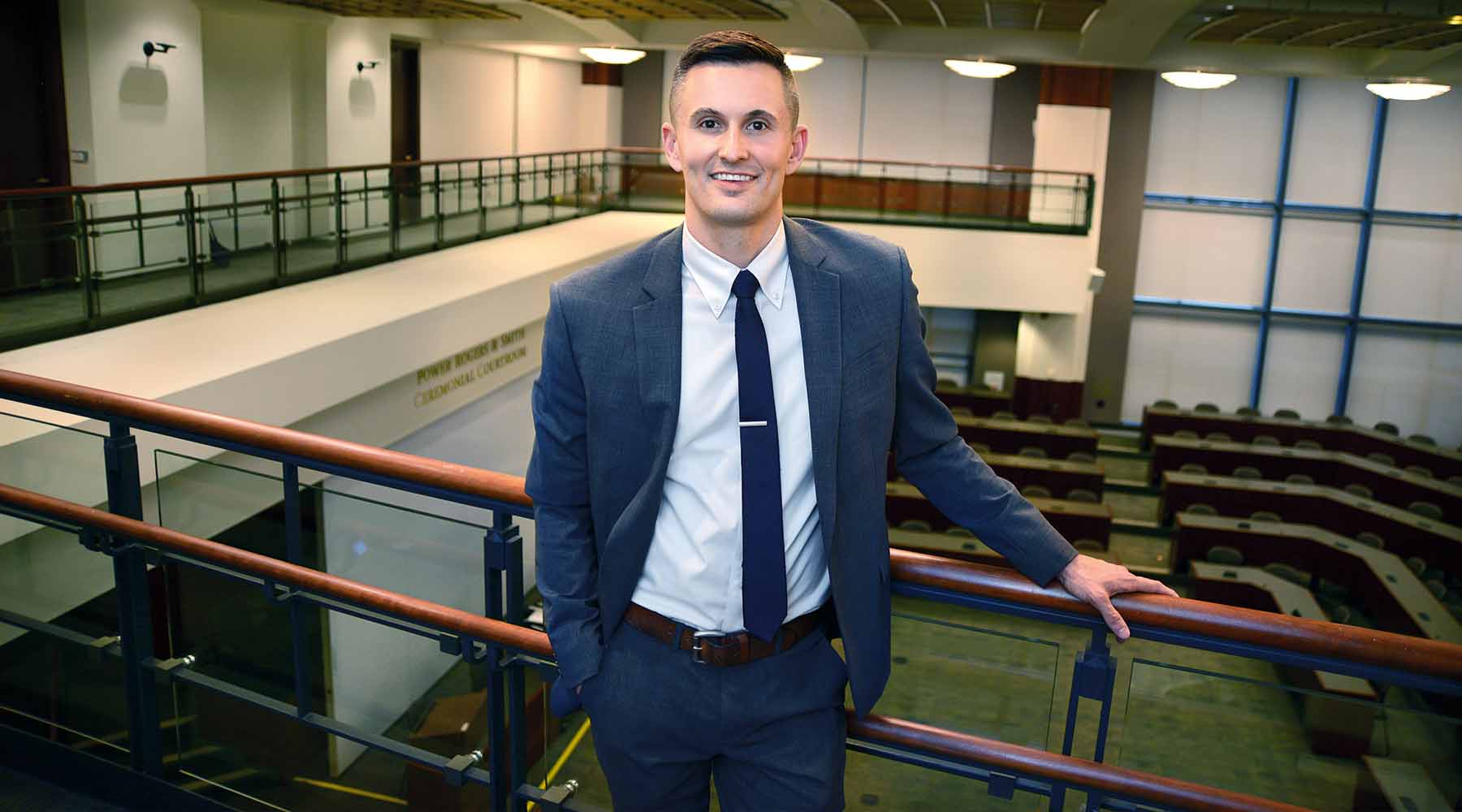FACULTY PROFILE Stephen Rushin
Holding police accountable
Professor Stephen Rushin specializes in law enforcement reform
Professor Stephen Rushin knows firsthand the challenges law enforcement professionals face. His father was a police officer, which gave him a “unique perspective on what policing looks like: the challenges of holding officers accountable and the challenges officers face day to day.”
The work of Rushin, Judge Hubert Louis Will Professor of Law, centers on accountability. “[It’s about] how we limit racial bias, how we limit the harm generated by policing,” he says. “All my work deals with how we make sure we have good policing.”
At U.C. Berkeley, Rushin earned a JD as well as a PhD in jurisprudence and social policy, an interdisciplinary law and society program. “I got my start researching crime and policing tactics in New York City,” he says, “something I still teach today.”
Rushin’s book Federal Intervention in American Police Departments (Cambridge University Press, 2017), argues that structural reform litigation is an imperfect but effective counter to police misconduct. Major media outlets including the New York Times and the Chicago Tribune frequently call on Rushin for his expertise on contentious topics like racial profiling, de-policing, police defunding, and police surveillance.
In his class on police accountability, Rushin teaches students how to legally prove racial discrimination, unlawful use of force, and Fourth Amendment violations. The course also explores barriers to accountability, how various police departments regulate officers through internal policies, and potential means of reform.
It’s more important than ever to “train ethical lawyers who can be advocates for social justice,” Rushin says, and he thinks Loyola University Chicago School of Law is an ideal place to do just that because of its recently revamped anti-racist mission.
“There’s something energizing about being in the city of Chicago, a place where policing is in the news and people care about on-the-ground advocacy efforts,” Rushin says.
Plus, he says Chicago is one of the rare places where those who want to specialize in this field can launch their legal careers.
“We have a significant number of law firms that work in the civil rights space, litigating against police misconduct,” he says. “We have a robust civilian office of police accountability, where several of my current and former students have worked or interned. There are opportunities here to do that kind of work in a way that there aren’t elsewhere in the country.” —Audrey Michelle Mast (April 2022)
Esteemed Faculty
Loyola University Chicago's Law Faculty members have earned a reputation for excellence in teaching, publishing, speaking, and public policy.



